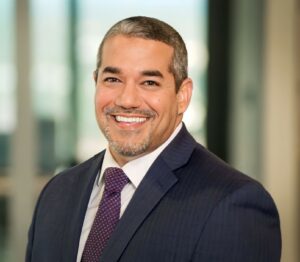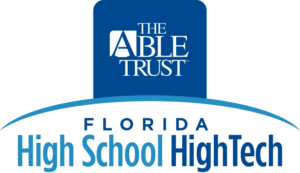Partner Perspectives
Braulio Colón, Executive Director
Florida College Access Network
 What trends in secondary or postsecondary education are you seeing that will be important for students?
What trends in secondary or postsecondary education are you seeing that will be important for students?
One positive trend we are seeing is tuition at Florida’s public colleges and universities continues to hold the line, keeping college relatively affordable in Florida. In an environment where housing and food prices are higher than ever, we’re also glad to hear that 610,000 more students nationwide will qualify for Pell grants, and 1.5-million students will qualify for the maximum Pell grant. While the new FAFSA (Free Application for Federal Student Aid, a requirement for Pell grant eligibility) rollout has not been as smooth as one would have hoped, lower-income students and families will benefit from these increased and overdue investments.
What do you believe are some of the biggest challenges facing students in Florida today?
One challenge facing Florida students today is the siren song of a paycheck. Florida is rapidly growing, and the population grew by 1,000 people per day from 2022 to 2023, penciling out to the second-largest population growth rate in the nation. This population growth has put a lot of pressure on the state’s labor market, and across the state only 91 people are looking for work for every 100 jobs employers seek to fill. Wages are increasing as a result and while inflation is down, prices remain high. Students face a significant challenge avoiding the instant gratification of a job today versus pursuing education beyond the high school diploma and a prosperous career tomorrow, despite the dividends – financial and otherwise – offered by post-secondary credentials.
What is the mission/purpose of FCAN?
Florida College Access Network leads the collaborative movement to ensure all Florida residents have access to success in education after high school and a rewarding career. The goal is for 60% of Florida residents to hold a postsecondary degree or high-value credential by 2030. In order to get there, we envision a Florida working together leveraging the power of collaboration to accelerate systemic change and action in support of students. By working together, we can ensure the pathways to education are clear and that all students can be successful.
How is FCAN’s work helping resolve these challenges?
FCAN produces state-specific research, data, and analysis that is shared broadly and used to build knowledge and to elevate promising practices and policy options.
FCAN also provokes community action and supports the development and growth of local and regional cross-sector collaboratives known as Local College Access Networks (LCAN). LCANs leverage FCAN’s research and data to set education attainment goals and to inform the design of interventions that help fill service and support gaps for students. Every county or region should have an LCAN. And over the last ten years, we’ve seen LCANs proliferate representing now over 80% of the state’s student population.
FCAN also leverages the power of multi-media storytelling to illuminate the on-the-ground experiences of students and direct impact of state and institutional policies. When we can put a face on the issue, it helps to bring an advocacy agenda to life.
FCAN empowers students to bring their voices to Tallahassee. Every year we mobilize students to push for student-centered policies that help with college-readiness, access and affordability, and college completion.
Finally, we host the Talent Strong Florida summit every year where champions of this work come together to network, learn, and celebrate progress. With an educated and talented citizenry, Florida is strong. We want to see all residents who aspire to benefit from the power of a college education and a high-value industry-aligned curriculum.
Learn More about
The Able Trust
Youth Programs
High School High Tech (HSHT) provides high school students with all types of disabilities the opportunity to explore jobs or postsecondary education leading to in-demand careers. HSHT links youth to a broad range of academic, career development and experiential resources and experiences that will enable them to meet the demands of the 21st century workforce.
Futures in Focus is intended to support students from grades 6 to 12 (aged 12-22) who have a disability documented by an IEP or 504 Plan.
- Improve participation in education and vocational-related activities leading to increased employment opportunities for middle/high school students with disabilities.
- Connect students to resources that assist them with education and employment pursuits, such as Florida’s Division of Vocational Rehabilitation.
- Increase enrollment in postsecondary education/training.
